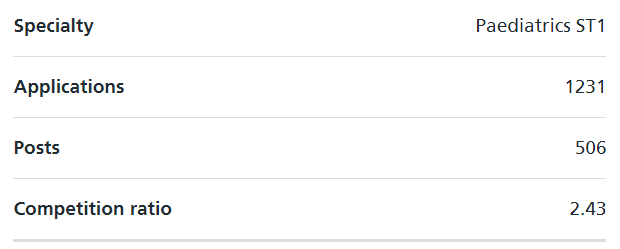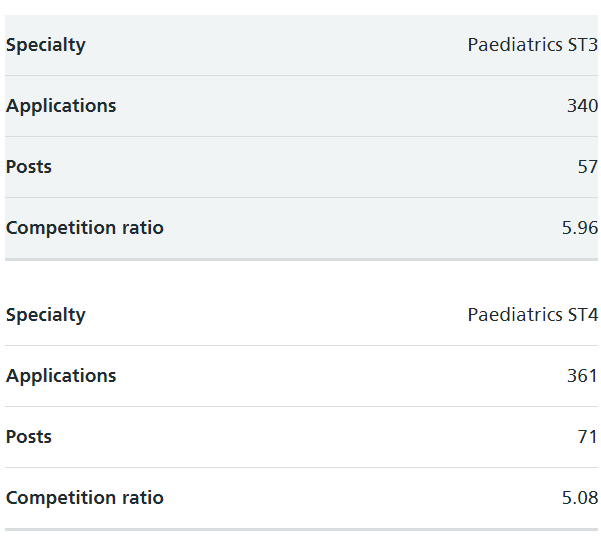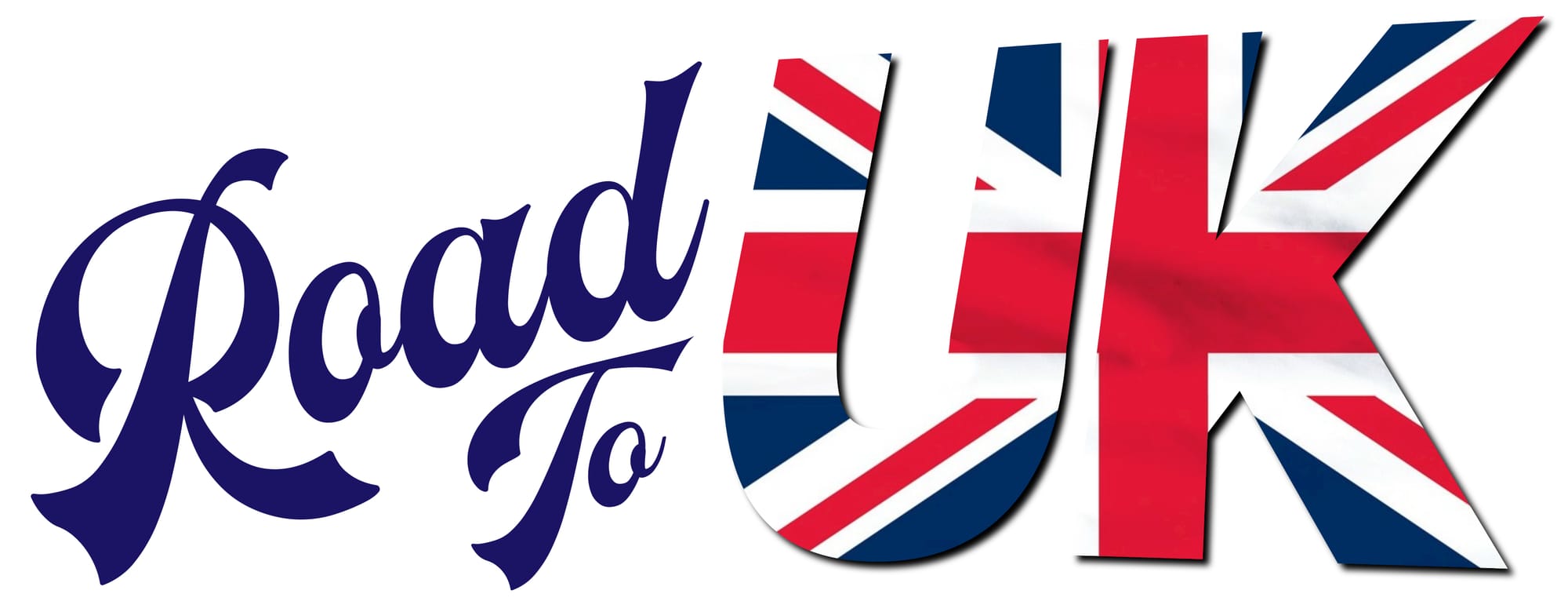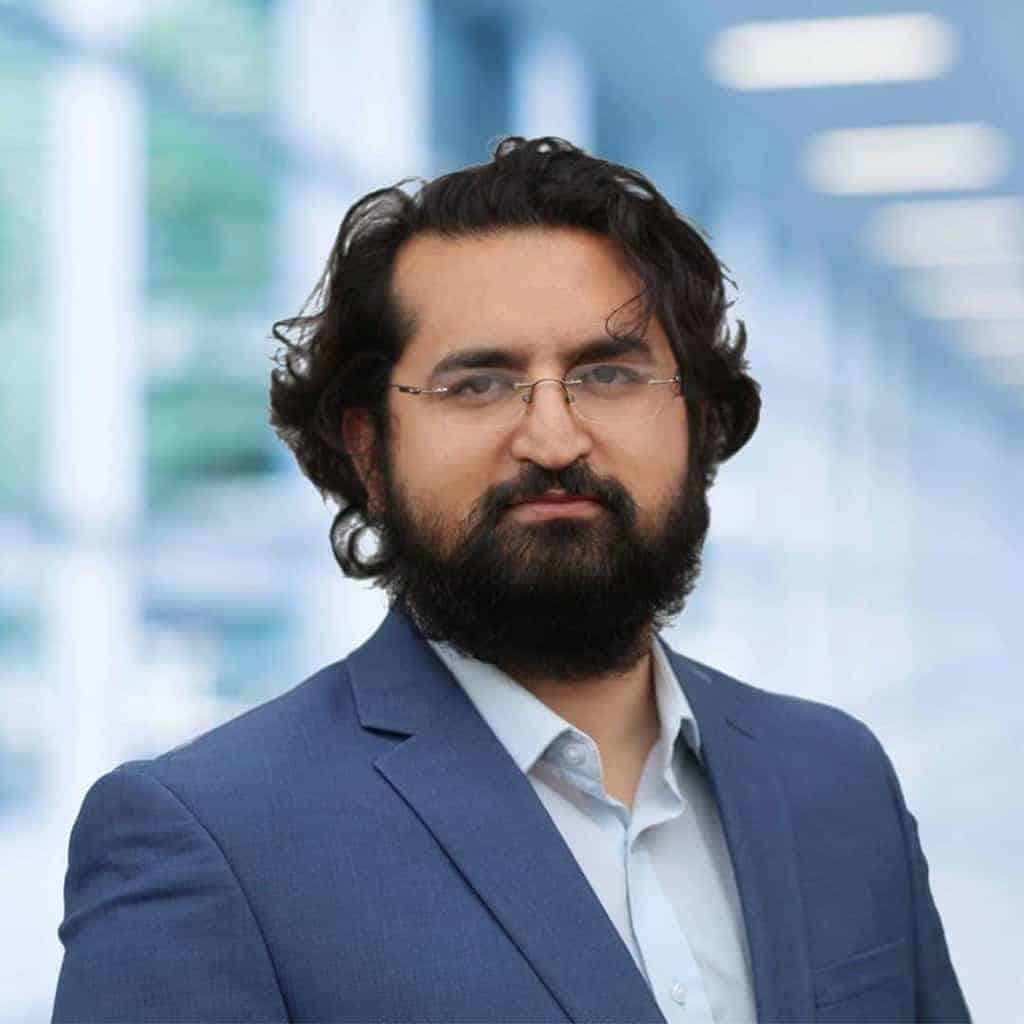Specialty Training in Paediatrics in the UK

Paediatrics is the branch of medicine that involves the medical care of infants, children, and adolescents. In UK, the paediatrics department provides care to the patients starting from birth to the age of 16. Paediatrics is a highly sought after specialty training in the UK and has many unique branches in itself.
Levels of Paediatrics Training & Sub-specialties
Paediatrics in UK is a run-through training starting from ST1 to ST8. Recruitment happens at ST1/2. ST3 and ST4 level. (ST stands for Specialty Trainee and the number tells which year of training the trainee is.)
The Paediatrics training pathway in the UK consists of three levels. All trainees follow levels one and two of the general paediatric curriculum. At level three they decide whether to continue in general paediatrics or to apply to complete their training in a chosen sub-specialty.
- Level 1 – ST1-3 (2-3 years) – provides basic knowledge of paediatrics and child health, with placements in acute general, neonatal and community paediatric posts. Full MRCPCH will be necessary to progress into level 2 training.
- Level 2 – ST4-5 (1-2 years) – training will be provided mainly in district general hospitals (DGHs) using existing core training posts and rotations including community paediatrics and neonatology. There’ll be a greater emphasis on outpatient presentations, and the expectation of a higher level of performance in relation to common paediatric conditions, child development and safeguarding.
- Level 3 – ST6-8 (2-3 years) – at Level 3, trainees may choose to enter subspecialty training in one of the accredited subspecialties or to stay on in general training.
17 different sub-specialties that you can choose from other than General paediatrics at Level 3 are as below:
- Child mental health
- Community child health
- Neonatal medicine
- Paediatric allergy, immunology and infectious diseases
- Paediatric clinical pharmacology
- Paediatric diabetes and endocrinology
- Paediatric emergency medicine
- Paediatric gastroenterology, hepatology and nutrition
- Paediatric inherited metabolic medicine
- Paediatric intensive care medicine
- Paediatric nephrology
- Paediatric neurodisability
- Paediatric neurology
- Paediatric oncology
- Paediatric palliative medicine
- Paediatric respiratory medicine
- Paediatric rheumatology
You would notice Paediatric cardiology is not in the above list because the training of that speciality is maintained by Joint Royal College of Physicians training Board and all other by Royal College of Paediatrics and Child Health. It is a specialty in its own right, partly integrated with medicine and partly with Level 1 padiatric training.
Let’s look at some statistics

- The number of available training posts for paediatrics in the UK is not that abundant as in General Practice or Internal Medicine Training.
- There was a 98.08% fill up rate in 2023.

The criteria of getting into Paediatrics Training
To reiterate and makes things more clear – paediatrics is a run-through training, so the core and specialty training modules are not separate. The following discussion about the training structure assumes that you already have obtained GMC registration and working in the NHS in a non-training job.
- Foundation training
- Run-through training
Foundation training
If you are a non-UK/EEA medical graduate, then you have three options:
- Obtain the equivalent of foundation training outside UK
- Obtain the equivalent of foundation training inside UK
- Getting into the foundation training by UKFPO.
You can get the certificate of readiness to enter specialty training (CREST) form signed by your overseas consultant if you had worked under them for at least three months after completion of your formal internship/house job and it meets all the CREST criteria mentioned in the form.
The same way, you can start working in the UK as a non-training doctor and after working under a consultant for at least three months, you can get those competencies signed off.
More information regarding Internship and UKFPO can be found here.
Run-through Training
Getting into ST1/ST2 Paediatrics training
If you have prior at least 12 months of paediatrics experience you can technically cut short your Level 1 training in to 2 years than standard 3 years. So there is one merged application for ST1/ST2 level. The main eligibility points in short are:
- Be eligible for full registration with, and hold a current licence to practise from, the GMC at intended start date
- Foundation competencies i.e. CREST signed, which has already been discussed above.
- No restrictions on prior paediatric experience: This means that applicants who have spent a bit longer working in paediatrics outside the internship period are not ‘penalised’.
Read more about getting into Paediatrics ST1/ST2 Training here
Getting into ST3 Paediatrics Training
Even though paediatrics in a run-through training in the UK, there is provision for applying in higher level of training if you have that level of paediatric experience. Following are the major eligibility criteria:
- Be eligible for full registration with, and hold a current licence to practise from, the GMC at intended start date
- Success in any two out of the three MRCPCH papers. This should be at time of application or application close date
- Foundation competencies i.e. CREST signed, which has already been discussed above.
- Evidence of achievement of ST1 competences in this specialty at time of application and ST2 competences by time of appointment as detailed in the Paediatric Curriculum.
- At least 24 months’ experience in Paediatrics (not including internship) by time of intended start date.
- Successful completion of APLS or EPLS (or equivalent) and NLS (or equivalent), valid at interview date and at time of appointment.
- Successful completion of Level 2 Safeguarding Children: Recognition and Response in Child Protection (or equivalent), valid at interview date and time of appointment.
Read more about application into ST3 ST4 Paediatrics training here.
Getting into ST4 Paediatrics training
If you have already completed MRCPCH, then ST4 is the level for you to apply along with the following criteria:
- Be eligible for full registration with, and hold a current licence to practise from, the GMC at intended start date
- Success in MRCPCH (by examination)at time of application or application close date
- Foundation competencies i.e. CREST signed, which has already been discussed above.
- Evidence of achievement of ST1, ST2 and ST3 (Level 1) paediatric competences at time of application, as outlined in the Paediatric Level 1 Curriculum (evidenced by Certificate Confirming Completion of Level 1)
- At least 24 months’ experience in Paediatrics (not including internship) by time of intended start date.
- Successful completion of APLS or EPLS (or equivalent) and NLS (or equivalent), valid at interview date and at time of appointment.
- Successful completion of Level 2 Safeguarding Children: Recognition and Response in Child Protection (or equivalent), valid at interview date and time of appointment.
Competition at ST3 & ST4

Getting into ST4 Paediatric Cardiology
As mentioned earlier, paediatric cardiology is a specialty in it’s own right. The major eigibilty criteria to be able to apply for it:
- Be eligible for full registration with, and hold a current licence to practise from, the GMC at intended start date
- MRCPCH or MRCP (UK) completed.
- Foundation competencies i.e. CREST signed, which has already been discussed above.
- Gaining core competencies:
- Evidence of Level 1 paediatric training competencies by doing Level 1 paeds training, or
- If on physicianly training then-
- Currently in or completion of ACCS training or Internal Medicine Training, or
- Alternative certificate of core competences (from a non-training job)
You can not apply for padiatric cardiology ST4 without having paediatric level 1 competencies signed, even you are coming from a physicianly training.
- Required prior experience (excluding internship rotations):
- Completed physicianly training in ACCS, IMT etc. or
- Minimum 24 months in medical specialties AND 12 months in paediatrics (of which 6 months in general paediatrics and 6 months in neonatology), or
- 36 months of paediatrics experience

What can an IMG (non-UK, non-EEA, without a settled visa) do to join the Padiatrics training?
I understand that all that mumbo-jumbo regarding competencies may sound very confusing if you are just planning to come to the UK, but these are for your future references as well when you start wokring in the UK. Eventually everything will be clear to you. Now let’s start with a few hypothetical doctors and understand their path into paediatrics training:
- Fresh graduate with only internship completed
- Have 1-2 years of paediatric work experience
- Have completed at least two parts of MRCPCH
- Have completed MRCPCH
- Have many years of paediatric experience but no parts of MRCPCH completed
For all these doctors, the primary target is to get GMC registration with a license to practice first. Everything follows after getting FULL GMC registration. And also you will not be eligible to apply for initial roundof advertisements for training posts.
0. Obtain Full GMC registration with a Licence to practice
If you already have completed full MRCPCH, you can apply for GMC registration on the basis of that with the required score in IELTS/OET. If not, then you will have to take PLABs in order to get GMC registration.
1. Fresh graduate with only internship completed
- Your first target would be get “Certificate of Readiness to Enter Special Traininig” (CREST a.k.a. Foundation Competences) signed.
- Gain experience in paediatrics to bolster your training application.
- Then apply for Paediatrics Level 1 Training (ST1) when the application round opens.
2. Have 1-2 years of paediatric work experience
- Your first target would be get “Certificate of Readiness to Enter Special Traininig” (a.k.a. Foundation Competences) signed.
- You can aim for applying at ST3 level if you can:
- Manage to get two parts of MRPCH done while doing the non-training job
- And get ST1 and ST2 Padiatric competencies signed.
- Otherwise look forward to applying for ST1 level.
3. Have completed at least two parts of MRCPCH
- So, you tick out a major criteria for ST3 level application. You just have to gain the Paediatrics Level 1 competences signed off.
- How the competences work, it is discussed below.
4. Have completed MRCPCH
- You won’t have to take PLAB to get GMC registered. You can get the required score in IELTS/OET and apply for Full GMC registration.
- You would have to get Paediatrics Level 1 competencies signed off in order to apply for ST4 level training.
5. Have many years of paediatric experience but no parts of MRCPCH completed
- Unfortunately all those years of experience will only count towards to your paediatrics training if you can prove that that experience is equivalent to UK training, which can be a difficult task. (CESR route)
- So the plan is to start somewhere at least. With your extensive background in paediatrics it will take less time for you to climb up the ladder of exams and competencies.
Competencies, competencies! Where art thou?
- You can get the CREST form and guidance here- Alternative certificate of Foundation competences.
- You can get the Alternative certificate of core competences here.
- For Paediatric competences, however, it’s not that plain and simple. The first thing you would want to do is to go through the Level 1 UK generic training curriculum. If you are applying for ST3 or ST4 level you would need to provide evidence supporting your Paediatric Level 1 competency.
- This evidence should usually be in the format of a letter obtained from a Consultant that clearly states that the training to date has been equivalent to that of the ST1 level Paediatric Training Programme in UK, in accordance with the Level 1 Paediatric Curriculum. In addition, applicants may also wish to include satisfactory trainer reports, supervisory reports or other such documentation to support this.
- If the evidence is not found to be satisfactory, applicants will not be considered eligible and will be rejected at the longlisting stage.
- Any applicants who are unsure as towhether they can provide evidence of previous training, should contact the RCPCH recruitment office at paediatric.jobs@rcpch.ac.uk for further assistance.
- For ST4 applications, you would need to get this Certificate of Paediatric Level 1 Competency
If you are working in the UK in non-training job, the best way would be to get ePortfolio by RCPCH and maintain that towards getting the competencies signed like any other trainee at yoiur level is doing. You can even pay for associate membership with RCPCH to get the required training done according to the curriculum, even while you are a non-trainee.
Training Application Process
Like all other training applications in the UK, paediatrics also run nationally and the posts are advertised in ORIEL in specific time of the year. For updated dates please keep an eye out in the follwoing RCPCH pages:

Frequently Asked Questions
Do I need MRCPCH to apply for ST1 Paediatrics training?
No. You don’t require any parts of MRCPCH to apply for ST1 Padiatrics training.
I have a non-UK post graduate degree in paediatrics, where do I start?
If your postgraduate degree is not in the GMC approved list then that degree will help you get some point in your training application. But, if it is, then you can get GMC registration without PLAB.
Are the FY2 competences different for paediatric ST1 training application?
No, They are same for all the CT1/ST1 level specialities application. Now it is called Certificate of readiness to enter specialty training (CREST).
Is it difficult to get into paediatrics training?
From the statistics in the beginning and also from here Specialty training opportunities in the UK, it is very doable for an IMG to get into.
To conclude
"A baby is an inestimable blessing and bother."
- Mark Twain
Good luck to all the paediatrician IMGs!

